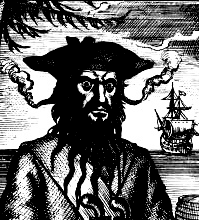Time seemed to slow down, almost pause. He could hear this fan a few meters away, screaming at him to cross the ball. What did he know? What did anyone know? He turned and looked at the coach, out of his dugout, pointing at something and yelling. He only just spotted the defender recover, making his way towards him again at great speed.
He remembered his childhood in La Plata, playing in the street with that flat football they'd found one day with his brother Alberto. They impersonated the greats of the day: Kempes, Ardiles, Tarantini, Luque. They always played these endless matches against the children from the calle San Lorenzo, a couple of blocks away across the avenida. Nobody ever knew the final score. The matches, scrappy affairs played in a cloud of dust, always ended in a fight which the Lorenzitos always won as they were a bit older. They could only retreat throwing rocks back at them. Once they crossed the avenida back into their own turf, they could taunt their opponents with swearing and gestures. The Lorenzitos would never dare to cross, they would be too far from home.
He poked the ball with the outside of his right boot, past the charging defender, jumping to avoid the tackle. He cut in, approaching the corner of the penalty box. There were three defenders, plus the one he'd just skinned who would surely be back on his feet any moment and approaching again. Jorge was taking a position near the penalty spot, while Diego and Gabriel were not far behind. He could also see Javier moving in fast from right back, towards the far post. He had a number of options and a number of obstacles. As the ball was getting stuck in the mud, he again slowed down to decide what to do.
He was only 13 when he lost his brother in the Malvinas War. He remembers his mother crying in the evenings for months, his father sitting in silence. That pointless war changed everything. Some of his friends were also conscripts and fought there, while his cousin Jose was on board the Belgrano, lost in the cold Atlantic waters. There was a shadow in his family and in the neighbourhood ever since, as if his childhood had come to an abrupt end. He carried on with his football, playing for a local club before signing forms for Gimnasia, one of the local big clubs.
He advanced with the ball, always keeping an eye out for the defender behind him. One of the two center-halves came towards him, slowly and cautiously. He saw Gabriel pointing to the space behind the center-half and beginning his run to space. He looked further and saw Diego stand off a bit, as if to shape to receive the ball and shoot. He had to act fast.
His childhood friend Matias had signed forms with Gimnasia's hated rivals, Estudiantes. Although they still met occasionally, the hatred between the two clubs was so great they gradually drifted apart. Whenever they met on the pitch, he sensed that Matias had grown arrogant and treated him with more than a hint of sarcasm. He tried to take his own back, but all he could manage was two sendings-off in three encounters. His coaches had already labelled him a rogue, a loose cannon who couldn't be relied upon when the going got tough. Against all odds, he managed to establish himself in the first team. But as he saw his friends advance and move to Boca, River or even Barcelona and Madrid, he stayed as his reputation as a bad boy preceded him, somewhat unfairly. His chance had come and gone.
The national team coach would never have called him had it not been for the misfortunes of other, more popular, and probably better, players. But here he was, striped in sky blue and white, with the crest on the chest, playing in the world cup final.
He knocked the ball forward, going past the first centre-half. He chose to ignore Gabriel and Diego; instead, he sweetly moved the ball to the left, finding himself with the other centre-half just off his right shoulder, but he was at too sharp an angle to take a shot at goal. He anticipated the defender's move. As the defender tried to shield the goal from a potential shot, he put his right foot under the ball and flicked it over the defender's left foot and into space. He didn't have to look. He knew perfectly well where the goal was. Where it always was, in the dusty streets of La Plata, in the training ground. It didn't matter if it was a Lorenzito in goal or a world class goalkeeper. It felt like a lifetime passed in a few split-seconds. He hit the ball firmly but with accuracy, making contact with the outside of his left boot. It curled and swerved away from the goalkeeper, landing just inside the far post and resting inside the net.
He can't quite remember what happened. He ran towards the fans, behind the goal. In the daze of it all he felt his team mates jumping on him, exploding with joy. It was all a mixture of rain, floodlights, mud and noise. Tears and laughter. Although he'd just given a whole continent a huge moment of joy, he could only weep. He wept the bitterest tears he ever had, as if the sweet embrace the net had reserved for his shot had released him from years of frustration. He'd done it. He'd won it. For himself, for Alberto, for his crying mother, and every crying mother. For that bastard Matias. He'd won it.




1 comment:
Making football interesting - that's quite a feat ;) Lovely writing.
Post a Comment